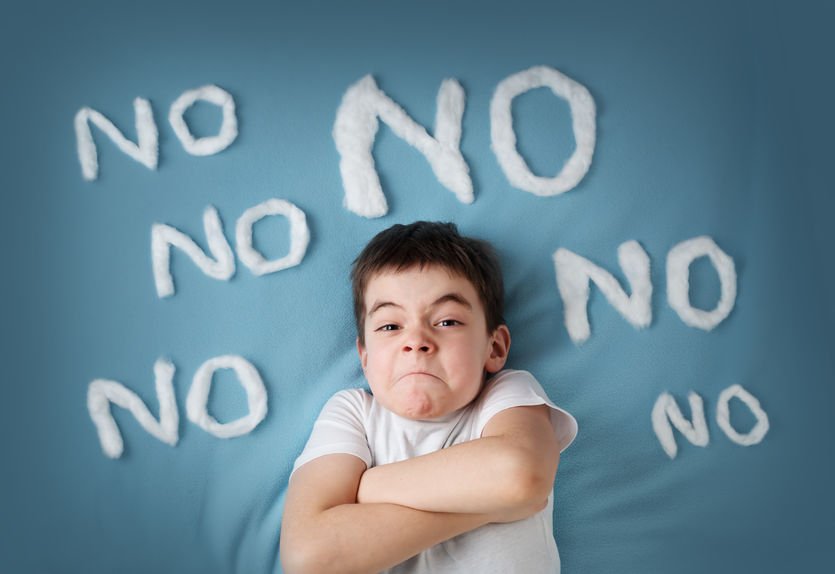What is Oppositional Defiant Disorder (ODD)?
Oppositional defiant disorder (ODD) is a childhood mental health condition involving disruptive behavior.
Nearly every child will have occasional outbursts of frustration and disobedience, of course. ODD doesn’t refer to developmentally appropriate temper tantrums or willful behavior. Instead, ODD involves:
- a long-standing pattern of defiant and argumentative behavior or attitudes toward caregivers, teachers, or other adults
- vindictiveness toward others
- a frequently irritable and angry mood or short temper
ODD can make it very challenging to interact with other people. Again, the behaviors that characterize this condition go beyond what’s typical for a child’s age and developmental stage.
Tantrums generally begin to taper off by the age of 4. So, you might have some cause for concern when a school-aged child continues to have regular tantrums, especially ones severe enough to disrupt everyday life.
Signs and Symptoms of Oppositional Defiant Disorder (ODD)
Children with oppositional defiant disorder:
- Lose their temper often
- Are quick to argue with adults over rules, requests or even small, unimportant things
- Are uncooperative
- Are unwilling to follow rules
- Annoy others deliberately and become annoyed by others easily
- Blame others for their misconduct or mistakes
- Are spiteful and vindictive
- Get in frequent arguments with their peers
- Are disciplined at school frequently
It’s important to remember that all children behave this way sometimes. These behaviors can be developmentally appropriate, depending on the intensity, frequency and age of the child.
The difference between normal behavior and ODD is that, with ODD, a child behaves this way more frequently and with more hostility than other children his or her age. Your child’s care team will take frequency, level of impairment and developmental appropriateness into consideration when a child has behavioral issues.
Causes of Oppositional Defiant Disorder (ODD)
Doctors don’t know the exact cause of ODD. It may result from a combination of factors. The child’s general attitude and how the family reacts to his or her behavior may play a role in it. ODD may run in families. Other causes may be related to the nervous system or to brain chemicals that are out of balance.
Treatment of Oppositional Defiant Disorder (ODD)
ODD Treatment varies based on many factors, including:
- Your child’s age.
- The severity of their symptoms.
- Your child’s ability to take part in and tolerate specific therapies.
- If your child has other conditions, such as ADHD, learning differences and/or OCD.
The Process should involve your child, your family and their school.
Treatment usually consists of a combination of the following:
- Parent management training (PMT).
- Psychotherapy (talk therapy).
- School-based interventions.
Parent management training for ODD
Parent management therapy (PMT) is the main treatment for oppositional behaviors. It teaches parents ways to change their child’s behavior in the home by using positive reinforcement to decrease unwanted behaviors and promote healthy behaviors.
There are different types of training programs, which usually involve multiple sessions over several weeks. During the sessions, parents learn to identify problem behaviors, as well as positive interactions, and to apply punishment or reinforcement as appropriate.
PMT has been shown to decrease conduct problems in multiple contexts and family backgrounds significantly.
Psychotherapy for ODD
Psychotherapy (talk therapy) is a term for a variety of treatment techniques that aim to help you identify and change troubling emotions, thoughts and behaviors. Working with a mental health professional, such as a psychologist or psychiatrist, can provide support, education and guidance to your child and your family.
Common types of psychotherapy that help treat ODD include:
- Cognitive behavioral therapy (CBT): This is a structured, goal-oriented individual type of therapy. A therapist or psychologist helps your child take a close look at their thoughts and emotions. Your child will come to understand how their thoughts affect their actions. Through CBT, your child can unlearn negative thoughts and behaviors and learn to adopt healthier thinking patterns and habits. CBT-based anger management training is useful in treating anger problems in children with ODD. In older children, problem-solving skills training and perspective-taking are helpful therapy strategies.
- Family-focused therapy: This therapy is for children with ODD and their caregivers. During this treatment, your child and family will join together in therapy sessions of psychoeducation regarding ODD, communication improvement and problem-solving skills. It can help identify factors in your home life that may contribute to or worsen aggressive behaviors.
School-based interventions for ODD
Supportive interventions to improve school performance, peer relationships and problem-solving skills are very useful in the treatment of ODD.
These interventions may include:
- Education and tools for your child’s teacher(s) to improve classroom behavior.
- Techniques to prevent oppositional behavior or the worsening of such behavior.
- Other methods that help your child follow classroom rules and acceptable social interactions.
